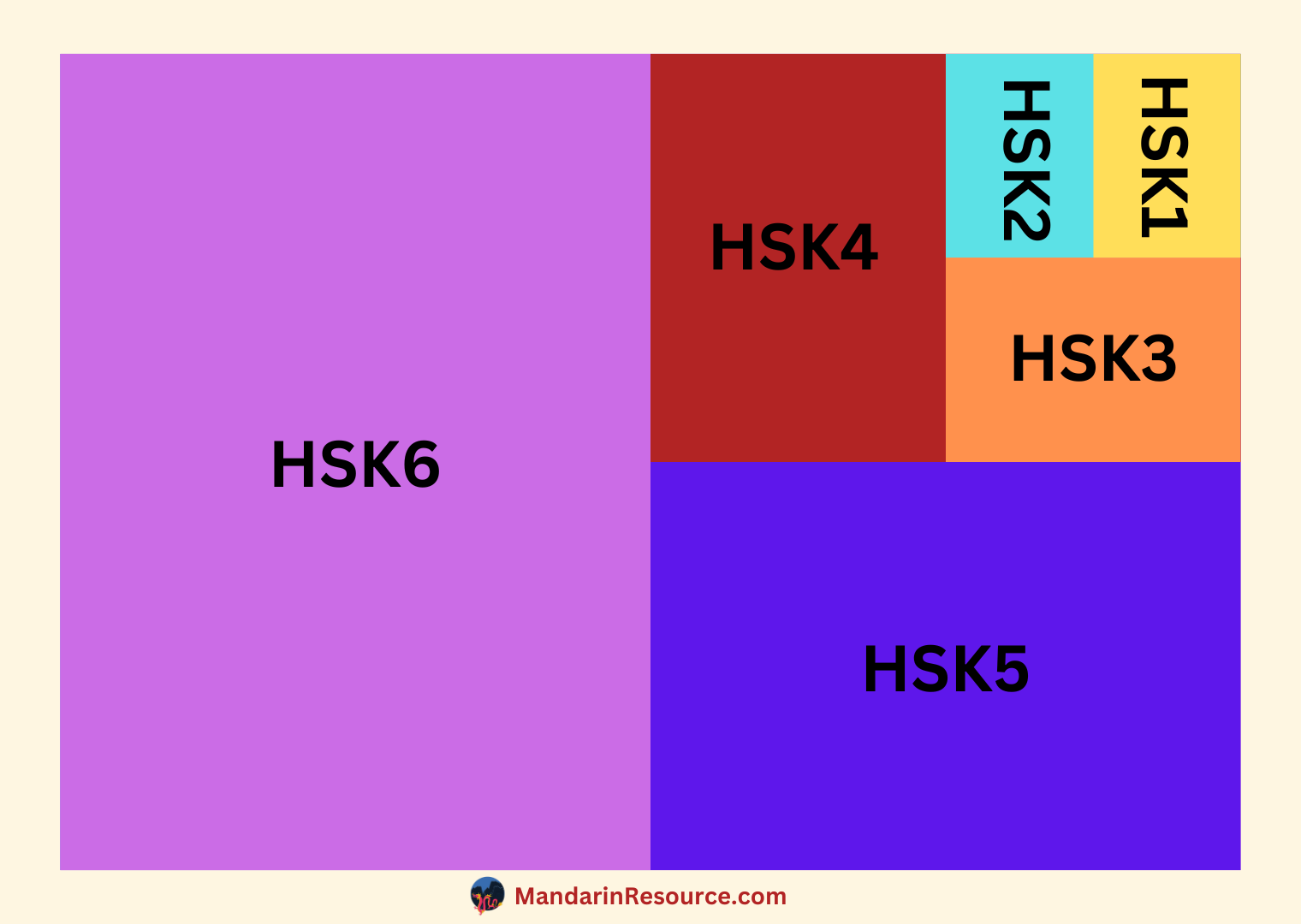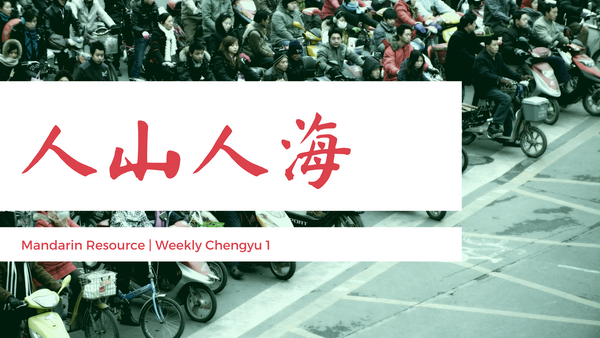What is the HSK exam?

The HSK (Hànyǔ shuǐpíng kǎoshì) is the official Mandarin Chinese proficiency test. The exam is produced by Hanban, an official Chinese government organisation, responsible for Mandarin education and the promotion of the Chinese language to international students. Hanban was also formerly the organisation responsible for university Confucious Institutes, until a restructure in 2020.
The HSK is a collection of exams, ranging from 1-6 with an additional exam planned to award levels 7-9 (more on that later). Students wishing to sit the HSK exam first decide on the level they will choose, depending on their current vocabulary. There is no requirement to sit prior levels before enrolling, so if you're already experienced - or even just have an elementary level of Mandarin - you may be able to skip the earlier levels.
Since its creation in the early 90s, the HSK has become the standard for measuring a student's Mandarin internationally, comparable to the IELTS for English. The certificate holds significant importance for students wishing to study in Chinese universities, or professionals hoping to work in Mainland China - or anywhere with a Mandarin language requirement.
The HSK, however, only tests Simplified Chinese. Students of Traditional Chinese, or those studying in Taiwan, can consider taking the Test of Chinese as a Foreign Language (TOCFL).
What are the HSK levels?

Discussion around HSK levels, what level you are, how someone reached level X in Y days or that a given resource 'works up to level Z' is everywhere in the world of Mandarin study, so it's important to have a good grasp of the levels early.
Historically, the HSK was divided into six levels, HSK 1 through HSK 6, with each level being a marked increase in difficulty from the previous level. Beginning at HSK level 1 with a total vocabulary of 150 words (and 174 characters 汉字), with each level progression students double their Mandarin vocabulary. This doubling with each level makes progression through the levels typically much faster for early-stage learners and gradually slows as one progresses.
I am a big fan of this system, as it both reflects the long-tailed progress in vocab and grammar serious students make, but also offers beginners a chance to credentialise- both proving and demonstrating efforts made to learn the language early.
| Level | Words (new) | Characters (new) |
|---|---|---|
| 1 | 150 | 174 |
| 2 | 300 (150) | 347 (173) |
| 3 | 600 (300) | 617 (270) |
| 4 | 1200 (600) | 1064 (447) |
| 5 | 2500 (1300) | 1685 (621) |
| 6 | 5000 (2500) | 2663 (978) |
This is still true, for the most part, bar some small changes Hanban are making to the structure of the HSK.
At present, the originally defined six independent levels exist as before. Each of these six levels have their own HSK exam: you can only be certified to a particular level by taking the exact exam for the respective level. Beyond level 6, there is now an additional three levels, 7 through 9.
The new three levels were introduced to ensure the HSK could appropriately certify higher standards of Mandarin, as required in further education and professional environments. It is also argued by some this change was introduced by Hanban to better align the HSK with the CEFR score system widely used internationally to measure language understanding.
Achieving these levels is different to the first 6 levels, with a grade of HSK 7-9 being issued based on performance on a single, shared, exam paper.
Information on these new levels is still sparse, and I'm yet to meet anyone who has sat it personally - let alone capable of Mandarin at this level myself - although it is widely noted that such levels shouldn't be seen to diminish HSK 6 results, the new 7-9 is for exceptionally serious students approaching near fluency.
An additional notable change expected to be introduced in 2024 is the merging of levels into 'Basic', 'Intermediate' and 'Advanced' brackets.
How does the HSK test work?
The HSK is divided into two different qualifications. The main HSK exam and the HSKK exam, also known as the Oral HSK exam.
Usually, when people are discussing Chinese proficiency or HSK levels, they mean the HSK exam, and HSKK is seen as an add-on test, where proof of spoken Chinese is required - or learners looking to test spoken Chinese. It's quite uncommon to see the HSKK listed as a requirement alongside the HSK on job descriptions and university courses, however.
HSK Exams
The HSK exams currently consist of three components: Listening, Reading, and for levels 3-6, Writing. The test levels are structured with a cumulative vocabulary and grammar base, meaning each successive level builds on the previous, doubling the approximate vocabulary required with each level.
For levels 1 and 2, there is no writing requirement, resulting in a shorter exam split into a listening section and a reading section. Further, the elementary levels include 拼音(Pīnyīn) Pinyin where tested characters are written - however pinyin is no longer present from HSK 3 onwards.
In the listening section, audio clips of dialogues and statements are played twice, with a number of test questions following. These questions include true or false questions and selecting an answer based on the dialogue.
The reading section of the exam similarly features a number of question formats, testing students reading comprehension, understanding of grammar structures and general vocabulary. Formats include fill-in-the-blank questions and comprehension questions based on a given text.
The final part of the exam is the written section, which is the shortest part of the exam. In this section, there are two exam formats. Firstly, you are given a small number of characters, typically 5-10, and are asked to form a sentence using the characters. Given the open nature of this section, it is possible for there to be multiple correct answers here. Secondly, you are given a complete sentence with one character missing - replaced by its pinyin. Here, you need to draw the correct character given the context and pinyin.

HSKK Exams
The HSKK is divided into three examination levels: Basic, Intermediate and Advanced. Each level ties in with its respective HSK levels, Basic covers HSK 1 and 2 grammar and vocabulary, Intermediate 3 and 4, Advanced levels 5 and 6. This means you will only be able to sit a given HSKK exam once you first have the prerequisite knowledge of the respective HSK levels, largely reserving the HSKK for serious learners and more advanced students.
How and where can I sit the HSK?
The HSK is usually offered at universities and colleges with Confucious Institutes. Being a student of the respective university isn't required to sit the HSK, so you are welcome to book the exam at whichever institute is closest to you. The exams are relatively affordable, especially when compared to other language certifications, typically costing between £20 and £70 depending on the level of the exam.
The easiest way to book an HSK exam these days is to find a nearby Confucius Institute and book a place on their website, then make an account on the Hanban website. Once you book with your local Confucius Institute, they'll direct you on the rest. The process is largely straightforward and can be done entirely online, however dealing with the Hanban website may be a little complex especially at earlier HSK levels. If you're having difficulty with this, contact the Confucius Institute where you booked the exam.
Some language schools may also be accredited HSK test centres by Hanban, meaning if you enrol in an intensive course, or residential Chinese study programme, you may be able to take the test at your school or nearby also.
Why should I take it?

For most people, the HSK is less about certification and more about proving their own progress. Unless you want to live in China, working at a Chinese company, or rely on Mandarin language skill for your current career - achieving the HSK is not a requirement. It is, however, a great addition to any resume and a serious study motivator, with many learning resources tightly aligned to the HSK syllabi and vocabulary lists.
Should a working life in China or translation be a dream for you, a high HSK score will be required. For university programmes, HSK 5 seems to be the minimum I see in literature, although exactly the level you need depends on what position and plan, you're aiming for. If you're unsure on specifics but want to plan ahead, HSK is a good bet.
The HSK test is also far, far more commonly recognised than any other Chinese language certification - so if you're serious about demonstrating Mandarin language skills even for non-mainland audiences, it may still be a worthwhile endeavour.
Which level is right for me?
If you're a complete beginner, start studying HSK level 1 material and aim for that. Otherwise, that question is difficult to answer.
A quick google search will show some fun little quizzes that attempt to determine your HSK level based upon your current vocabulary and grammar knowledge. If you're planning on an entirely self-taught approach to language learning, these tools will help with some guidance.
Another idea is to hire a language tutor on websites like Italki, Preply or Verbling and ask them to help determine your level. A qualified native speaking Mandarin teacher will be able to determine which level is most appropriate for you.
In either case, attempting a mock exam or reviewing material for different HSK levels will show you where you stand.
HSK 3.0 Changes
Over the last few years, Hanban has been making sweeping changes to the HSK exams, releasing the new HSK 3.0 system. With some changes live, such as new levels 7-9, details on what else to expect is not entirely known.
As more information is released, I plan to keep this article updated and fresh. If you want to stay in the loop with all changes (and learn plenty more at the same time), consider subscribing to the Mandarin Resource mailing list (no spam!!)
Exam tips

Preparing for the HSK exam can be stressful and difficult. I'll share more detailed articles on this blog on my personal study strategies and exam prep tips in due course, but there are a few core pieces of advice every HSK examinee needs to follow:
Prepare - Get familiar with answering HSK style questions and the HSK vocabulary. Aside from HSK aligned learning materials, I especially recommend using HSK Standard Course textbooks and workbooks. These books are written entirely in the same style as the exam, with questions asked in the same format and presentation.
Practice - Taking mock exams provided by your teacher, via YouTube lessons or found on Confucious Institute websites are a must to prepare yourself for the exam format and to understand your readiness for the exam.
Best of luck!
Finally, when it comes time to sit the exam, try to relax - The pass requirement for HSK exams is pretty generous all things considered, so your chances are good if you've prepared ahead of time - and worst-case scenario, HSK exams are typically held 4 times a year so there will be an opportunity to try again.
I wish you the best of luck - and if you are sitting the exam soon, please comment below and let me know how you found it!
If you're on your own Mandarin learning journey - whether you just started today or you're a polyglot who has lived in China for 15 years - Consider subscribing to Mandarin Resource - you'll find insightful and opinionated reviews, introductions to Chinese culture, and my first-hand perspectives every step of the way.
You can also follow me on Instagram @mandarinresource or email me josh@mandarinresource.com.





